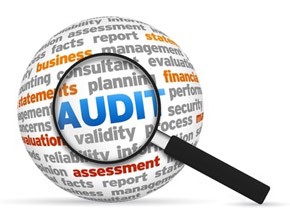
So you want to be an auditor? Any profession has its top lists of traits and skills that are needed in order to be successful, and being an auditor is no different. I’ve been an auditor for nearly five years, and this is my top 10 list. Do you have what it takes?
1. Communication skills — written and verbal. Auditing means being a good communicator with your team members, supervisors, and clients. A good auditor must be in constant communication with the client, updating them on the audit status and letting them know what is needed. Effectively explaining to the client what you are asking for and your expectations for the process and timing of the audit can make the difference between a fast, easy audit and a lengthy, difficult one. Client communications may be in the form of email, phone calls, or face to face. At Summit CPA Group, we do not have in person, face-to-face communication with the client, so we must enhance our written and phone communication skills even more so the client does not feel that they are missing out on anything.
An auditor must also communicate effectively with their teammates and the audit reviewer. Effective communication on expectations and responsibilities makes the audit smooth for everyone involved. Additionally, when documenting your work, explaining thoroughly and efficiently what you’ve done is essential for the reviewer.
2. Flexibility — A good auditor must be flexible. Every audit starts with a plan of action and an expectation of results, but since every client is different, most plans need amending as the audit progresses. As new issues arise, you must be willing and able to quickly change directions, alter your plan and find what works best. This may require rethinking how you are approaching a question, or it may be changing the schedule and timing of your audits. It may be moving on to a new client while waiting on something from the first one.
3. Multitasking — Part of being flexible in your day-to-day tasks and scheduling means multitasking, both between tasks and between clients. Auditing requires a lot of back and forth with clients and other providers as the auditor makes requests or has questions and then must wait on that information to come in. Auditing is often a game of hurry up and wait, so you must be able to quickly switch gears to something else to fill that waiting time. Additionally, you may have several audits in progress at the same time and need to move between them so they all stay on task and meet their deadline.
4. Organization — Audits have a lot of working parts. A good auditor must be able to organize all of these pieces of information in such a way they can easily find what they need when they need it. This includes everything from taking good notes during meetings to having a good indexing system for work papers. Organizing your time is also essential.
5. Patience — Patience is key in many aspects of auditing. As mentioned earlier, there is often a lot of waiting required. There are a lot of tasks that we assume will require 30 minutes and three steps but end up taking two hours and 10 steps. You may request something from the client or service provider and receive the wrong thing. In all these situations and more, it’s important not to get frustrated and lose your patience. It’s just all part of the job!
6. Curiosity — This is one of our core values at Summit CPA, and it is very important to auditing. A good auditor will always wonder why something is how it is and will ask why if needed. A good amount of curiosity will prompt the auditor to get a better understanding of the client and their processes and dig deeper into something that looks unusual. A curious auditor will constantly wonder if how they’re doing it is the best way, or how they can improve.
7. Accounting — This one’s almost a no-brainer, but it can’t be forgotten that a good auditor will have good basic accounting skills. You can’t possibly do a quality audit without having the fundamental understanding of accounting and what you should be looking for.
8. Technology skills — Accounting and auditing require a good understanding of many software programs and tools that assist you in completing and organizing your work. The most common tool is Microsoft Office Excel. A good working knowledge of Excel and its many functions can make your work much easier and drastically speed up the time it takes to complete an audit. Other tools we use at Summit CPA to complete our audits include Adobe PDF, Advance Flow for work paper organization, and Smartsheet for client communication and file sharing. Effectively using all these tools makes our audits go much quicker and easier.
9. Professional skepticism — In auditing we have a saying: trust but verify. While we don’t assume that our client is wrong or giving us misinformation, we need to see something to support what they are telling us. If we don’t understand what they’re saying, we need to ask for more information and/or supporting documentation. There’s often more to the story, and we want to make sure we get all the information needed.
10. Planning — The first step for every audit, is planning. An auditor must have good planning skills to effectively plan and execute an audit. As discussed previously, audits don’t always stick to the plan, and plans need to be amended. But without a well-planned foundation to start, no audit can be performed efficiently and properly.
What skills do you have that make you successful in audit?
.png?width=120&height=77&name=Summit-Virtual-CFO_color_rgb%20(1).png)










